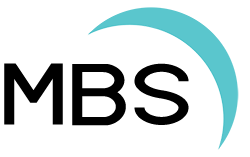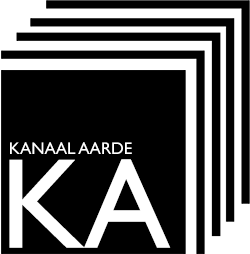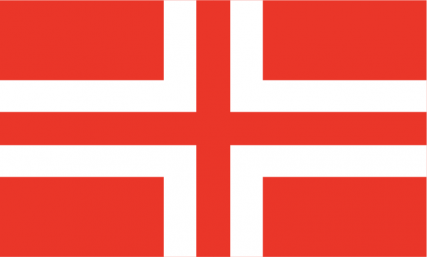Does your nation have a public broadcaster or public broadcasters? What is the history of public broadcasting in your nation? What services does your nation's public broadcaster(s) provide?
In Gandoor, the Gandoor Broadcasting Corporation (GBC) serves as the public broadcaster. The GBC originated as Radio Company Gandoor, a private company, established in 1917 as the first radio broadcaster in our nation. In 1920, the Public Broadcasting Act was passed by the Forum and came into effect on 7 May 1921, nationalising Radio Company Gandoor and renaming it to the Gandoor Broadcasting Corporation. Unlike many other countries, where public broadcasting became the only form of broadcasting, Wonder Radio, which was established in 1920, was not nationalised and was permitted to continue broadcasting, with any future private radio broadcasters being required to gain the approval of the government before beginning broadcasting.
In 1935, the GBC began experimental television broadcasts from Gandoor City. At the time, private citizens could not purchase television sets, so any members of the public who wanted to view these broadcasts had to visit television broadcast rooms at local universities
The experimental broadcasts would end in 1941 and, for several years, there would be no official development regarding television broadcasting in Gandoor. In 1948, the GBC announced the creation of a public television network tentatively referred to as 'GBC Television' due to begin broadcasting by 1950. On 31 December 1949, the Gandoor Broadcasting Network (as GBC Television was ultimately called) began broadcasting as the first non-experimental television network in Gandoor.
In 2006, the Gandoor Broadcasting Network's name was officially shortened to GBN.
In 2019, the GBC officially began international operations and established three international television channels. At the present date, there are no international radio networks operated by the GBC.
The Foreign Language GBC Act was passed by the Forum in 2019, requiring that the GBC establish two additional channels with programming entirely in Japanese and Russian by 2030. The two channels, named GBN Nihongo and GBN Russiky, began broadcasting in 2023 as the first channels by the GBC to broadcast exclusively in languages other than English.
In Gandoor, the GBC operates six television channels and four radio stations. All funding for national television and radio broadcasting by the GBC comes from the Gandoorese government, with households who own at least one television or radio being required to pay a 100 GDY license fee annually, the fee increases by 20 GDY for every additional television or radio, up to a maximum license fee of 200 GDY.
The current national television channels owned and operated by the GBC are:
GBN - Began broadcasting in 1949. The primary channel of the GBC, airs programming aimed at all license-fee payers such as news, current affairs, sports, documentaries, and drama. Airs on channel 2.
GBN Alt - Began broadcasting in 2004. Airs non-mainstream and experimental programming aimed at audiences aged between 20 and 40 years old. Airs on channel 3.
Chiddies - Began broadcasting in 2003. A children's channel that airs programming aimed at children between the ages of 3 and 12 years old. Shows that air between 6.00 AM and 12.00 PM are aimed at viewers aged between 3 and 6 and shows that air between 12.00 PM and 6.00 AM are aimed at viewers aged between 6 and 12. Airs on channel 4.
GNN - Began broadcasting in 1990. The first 24-hour news network in Gandoor. Also airs some current affairs programming and documentaries. Airs on channel 6.
GBN Nihongo - Began broadcasting in 2023. A Japanese-language channel, English subtitles are available for all programming. Airs on channel 7.
GBN Russkiy - Began broadcasting in 2023. A Russian-language channel, English subtitles are available for all programming. Airs on channel 8.
The current national radio stations owned and operated by the GBC are:
GBC Radio 1 - Began broadcasting in 1917 as Radio Gandoor, renamed to GBC Radio in 1921 and to GBC Radio 1 in 1961. Broadcasts popular music and call-in shows.
GBC Radio 2 - Began broadcasting in 1961. Broadcasts non-mainstream music.
GBC Radio News - Began broadcasting in 1951. Broadcasts news programming.
GBC Radio Entertainment - Began broadcasting in 1970. Broadcasts made-for-radio entertainment such as comedy series, soap operas, or serials.
In addition to television and radio services, the GBC also owns and manages the Gandoorese Television and Film Archives. The GTFA was established in 1959 and is intended to serve as a preservation service for Gandoorese television programs and films in order to prevent their loss due to circumstances such as wiping or junking of tapes. As of 1970, at least one copy of an episode of a television program or a motion picture is required to be sent to the archives by law. As the GTFA was founded in 1959 and archival was not made mandatory until 1970, both the television and film archives are incomplete. The earliest complete episode of a television program in the archive dates back to 1952 (the earliest incomplete episode in the archive dates back to 1950) and the earliest year that there are no Gandoorese films unaccounted for is 1944.
On an international level, the GBC owns and operates four television channels. In contrast to the national operations, all international channels are commercial and are funded via advertising and fees from satellite and cable companies that carry the international channels, as the GBC is prohibited from using funds from the government to operate television channels outside of Gandoor.
The current international television channels owned and operated by the GBC are:
GBN International - Began broadcasting in 2019. A general international channel that broadcasts a mix of GBC-originated programming and acquired programming.
GBN International 2 - Began broadcasting in 2021. A general international channel that only broadcasts acquired programming.
Chiddies International - Began broadcasting in 2019. Referred to in network promotions as just Chiddies, a children's network aimed at children between the ages of 3 and 12. Just like the version broadcast in Gandoor, programming aired between 6.00 AM and 12.00 PM is aimed at children between the ages of 3 and 6 and programming aired between 12.00 PM and 6.00 AM is aimed at children between the ages of 6 and 12.
GNN World - Began broadcasting in 2019. Broadcasts international news, documentaries, and other programming aimed at a global audience.
Throughout the GBC's over 100 years of operations, there have been several television and radio services operated by them that have since ceased broadcasting.
The following television channels were formerly broadcast by the GBC:
GBN 2 - Broadcast from 1963 until 1976, GBN 2 was created for colour broadcasting (GBN wouldn't began airing colour programming until 1967) but suffered from low ratings and budget issues throughout its thirteen years on the air. GBN 2 aired on channel 3.
GBN Kids - Broadcast from 1981 until 1989, GBN Kids was the first children's channel in Gandoor and was aimed at kids aged between 6 and 13 years old. GBN Kids aired on channel 4.
GBN Culture - Broadcast from 1986 until 2003, GBN Culture broadcast more highbrow and artsy programming compared to GBN. Some of their programming was non-mainstream and could be considered a predecessor of sorts to GBN Alt. GBN Culture aired on channel 5.
GBN Classics - Broadcast from 1996 until 2004, GBN Classics exclusively aired programming from the 1970s and earlier. Despite respectable ratings early on, viewership had dropped significantly by 2001, leading to GBN Classics being replaced by GBN Alt in early 2004. GBN Classics aired on channel 3.
The following radio stations were formerly broadcast by the GBC:
GBC Radio Emergency - Broadcast from 1951 until 1983, GBC Radio Emergency was only intended to broadcast during national emergency situations, such as natural disasters, wartime, terrorist attacks, etc. It ceased broadcasting due to a 1982 announcement by the GBC and various private broadcasters that, in the event of a national emergency, all radio stations would have their programming interrupted by a news announcer from the GBC during the duration of the emergency.
GBC Radio Classics - Broadcast from 1985 until 2009, GBC Radio Classics broadcast 'retro' radio entertainment programming from the 1950s to the 1970s. Ceased broadcasting due to the decline of made-for-radio entertainment and most repeats of classic radio shows now broadcast on GBC Radio Entertainment.


























